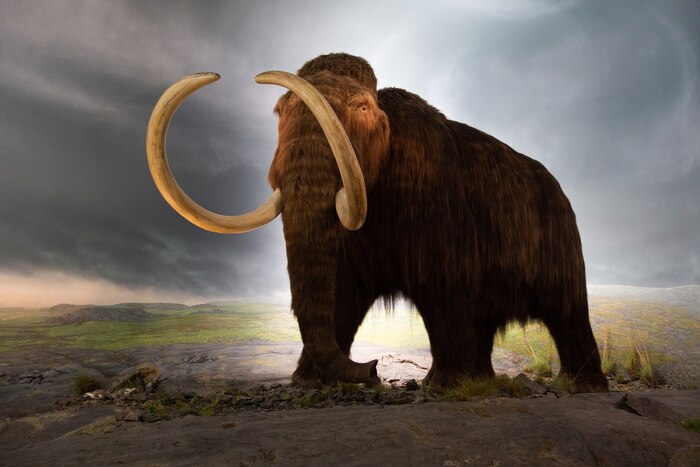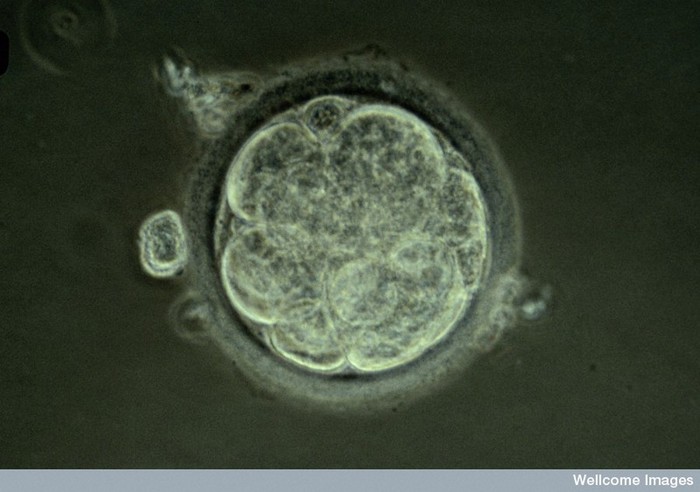What is the subject of countless horror films has long been reality: Scientists create human-animal hybrids.
The medical benefits should justify this.
Half lion, half goat, half dragon: in Greek mythology, the chimera is considered a terrifying beast. But mixed creatures from humans and animals do not only exist in legends and stories. In 2017, researchers at the Salk Institute for Biological Studies in La Jolla, California, attempted to create the first embryos containing human and pig cells.
One of the aims of this experiment was to find ways to grow intact human cells, tissues and organs in animals.
This should be particularly useful because of the lack of donor organs *. But the "creation" of new forms of life calls critics on the scene - and the ethics council.
Earlier attempts with chimeras of humans and pigs as well as humans and mice had failed, as reported by the
Süddeutsche Zeitung (SZ)
. Researchers see the species barrier between humans and rodents or humans and pigs as the cause, among other things. Humans and monkeys are more genetically similar.
A new research project now dealt with the crossbreeding of human and monkey cells
. In the current issue of the specialist magazine
Cell
an international research team headed by Juan Carlos Izpisua Belmonte from the Salk Institute reports that they have succeeded in creating embryos from human cells and cells from monkeys.
The researchers each injected 25 human stem cells into six-day-old macaque embryos in the early stages, as the knowledge portal
geo.de
informs.
The embryos were not viable.
Initially, all 132 embryos grew, but after ten days there were only 103, as the researchers informed.
On day 19 after fertilization, there were only three embryos left that were alive.
Stem Cell Researcher and Ethics Council: Different Approaches to Chimera Research
Stem cell researchers like Hans Schöler see the study as "exciting basic research", as
GEO
reports. However, the actual cultivation of organs in such chimeras is still “very far away”, according to the director at the Max Planck Institute for Molecular Biomedicine in Münster.
The German Ethics Council demanded in 2011 that “attempts to produce transgenic great apes should be prohibited because they are closely related to humans,
” as
welt.de
informs. The main concern of ethicists is the possibility of implanting such mixed-breed embryos in human or animal surrogate mothers. Like the
SZ
informed, asserts study director Izpisua Belmonte that he has no plans for something like that.
"It is our responsibility as scientists to think through our research well and to follow all ethical, legal and social guidelines," said Belmonte.
The
SZ
continues
to inform that the only goal of his experiments is to better understand embryonic development
.
(jg)
* Merkur.de is an offer from IPPEN.MEDIA.
More sources: https://www.cell.com/cell/fulltext/S0092-8674(16)31752-4
Read more
: Breakthrough in Cancer Research?
This method is designed to prevent metastases from forming.
Warning: These four pathogens can cause cancer
Warning: These four pathogens can cause cancer








/cloudfront-eu-central-1.images.arcpublishing.com/prisa/QZBKEHFL6RHI5FSPQNNBZGIIUA.jpg)





/cloudfront-eu-central-1.images.arcpublishing.com/prisa/S7ERVSCT4FUVX6R7TUVBDNTH5Y.jpg)
